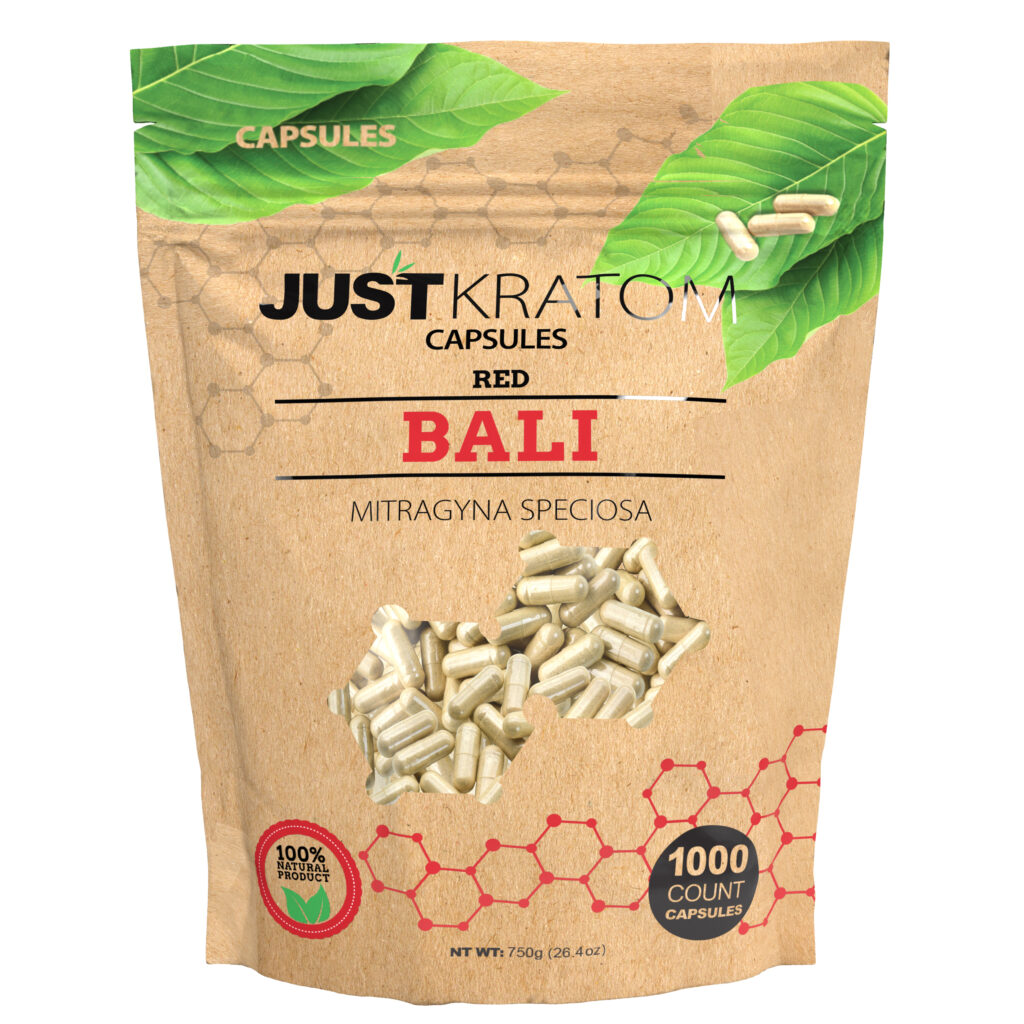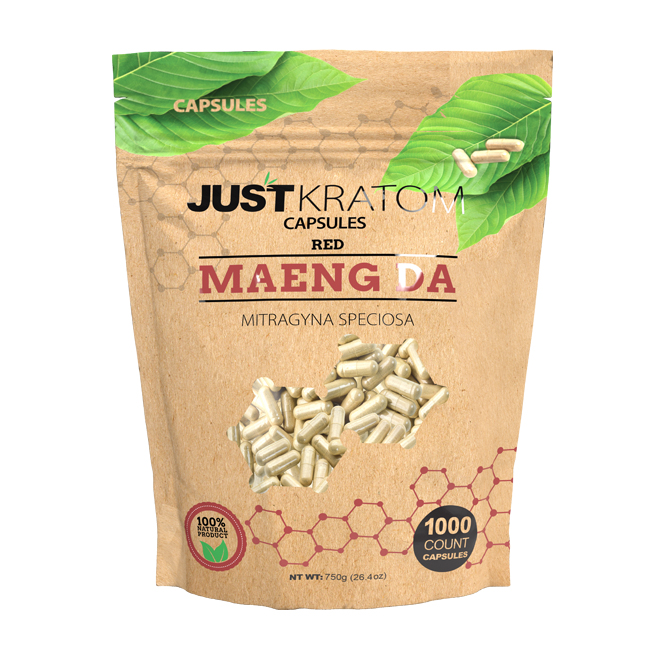What is Kratom?
Kratom is a tropical evergreen tree native to Southeast Asia. Its leaves contain psychoactive compounds called alkaloids, primarily mitragynine and 7-hydroxymitragynine. These alkaloids have been traditionally used for various purposes, including pain relief, energy boost, and relaxation.
Origin and Chemical Composition
Kratom is a tropical evergreen tree native to Southeast Asia. Its leaves contain psychoactive compounds called alkaloids, primarily mitragynine and 7-hydroxymitragynine. These alkaloids have been traditionally used for various purposes, including pain relief, energy boost, and relaxation.
The Mitragyna speciosa tree produces kratom leaves that are consumed in various ways, including chewing fresh leaves, brewing teas, or taking capsules or extracts. Kratom’s effects can vary depending on the dosage and individual user, ranging from mild stimulation to sedation.
Traditional Uses
Kratom is a tropical evergreen tree native to Southeast Asia. Its leaves contain psychoactive compounds called alkaloids, primarily mitragynine and 7-hydroxymitragynine. These alkaloids have been traditionally used for various purposes, including pain relief, energy boost, and relaxation.
The Mitragyna speciosa tree produces kratom leaves that are consumed in various ways, including chewing fresh leaves, brewing teas, or taking capsules or extracts. Kratom’s effects can vary depending on the dosage and individual user, ranging from mild stimulation to sedation.
- Pain Relief
- Energy Boost
- Relaxation
Kratom and Sleep
Kava is a tropical evergreen tree native to Southeast Asia. Its leaves contain psychoactive compounds called alkaloids, primarily mitragynine and 7-hydroxymitragynine. These alkaloids have been traditionally used for various purposes, including pain relief, energy boost, and relaxation.
Mechanism of Action
The mechanisms behind kratom’s potential sleep benefits are complex and not fully understood. Research suggests that kratom alkaloids, particularly mitragynine, may interact with opioid receptors in the brain. These receptors are involved in regulating pain perception, mood, and sleep.
Activation of these receptors can lead to feelings of relaxation and drowsiness, which may promote sleep. Additionally, kratom has been found to affect serotonin levels in the brain. Serotonin is a neurotransmitter that plays a role in sleep regulation. By influencing serotonin activity, kratom could contribute to improved sleep quality.
Potential Benefits
The mechanisms behind kratom’s potential sleep benefits are complex and not fully understood. Research suggests that kratom alkaloids, particularly mitragynine, may interact with opioid receptors in the brain. These receptors are involved in regulating pain perception, mood, and sleep.
Activation of these receptors can lead to feelings of relaxation and drowsiness, which may promote sleep. Additionally, kratom has been found to affect serotonin levels in the brain. Serotonin is a neurotransmitter that plays a role in sleep regulation. By influencing serotonin activity, kratom could contribute to improved sleep quality.
Improved Sleep Quality
Kratom is gaining popularity as a potential natural remedy for sleep problems.
The mechanisms behind kratom’s potential sleep benefits are complex and not fully understood. Research suggests that kratom alkaloids, particularly mitragynine, may interact with opioid receptors in the brain.
- These receptors are involved in regulating pain perception, mood, and sleep.
- Activation of these receptors can lead to feelings of relaxation and drowsiness, which may promote sleep.
- Additionally, kratom has been found to affect serotonin levels in the brain. Serotonin is a neurotransmitter that plays a role in sleep regulation.
By influencing serotonin activity, kratom could contribute to improved sleep quality.
Reduced Insomnia Symptoms
Kratom’s potential for reducing insomnia symptoms is being explored, with research suggesting it may promote relaxation and improve sleep quality.
The alkaloids in kratom, particularly mitragynine, are believed to interact with opioid receptors in the brain, which play a role in pain perception, mood regulation, and sleep.
Activation of these receptors can induce feelings of relaxation and drowsiness, potentially leading to better sleep. Additionally, kratom appears to influence serotonin levels, a neurotransmitter involved in sleep regulation.
Possible Risks and Side Effects
Kratom is gaining popularity as a potential natural remedy for sleep problems.
The mechanisms behind kratom’s potential sleep benefits are complex and not fully understood. Research suggests that kratom alkaloids, particularly mitragynine, may interact with opioid receptors in the brain.
- These receptors are involved in regulating pain perception, mood, and sleep.
- Activation of these receptors can lead to feelings of relaxation and drowsiness, which may promote sleep.
- Additionally, kratom has been found to affect serotonin levels in the brain. Serotonin is a neurotransmitter that plays a role in sleep regulation.

By influencing serotonin activity, kratom could contribute to improved sleep quality.
However, it’s crucial to be aware of the potential risks and side effects associated with kratom use.
- Addiction: Kratom can be addictive, and prolonged use may lead to physical dependence.
- Withdrawal Symptoms: Abrupt discontinuation of kratom use can cause unpleasant withdrawal symptoms such as irritability, anxiety, muscle aches, and nausea.
- Interactions with Medications: Kratom may interact with certain medications, including opioids, antidepressants, and blood thinners. It’s essential to consult a healthcare professional before using kratom if you are taking any other medications.
- Liver Damage: There have been reports of liver damage associated with kratom use, although more research is needed to determine the extent of this risk.
Kratom should not be used by pregnant or breastfeeding women, children, or individuals with pre-existing medical conditions.
It’s also important to note that the quality and potency of kratom products can vary widely. Purchasing kratom from reputable sources and following recommended dosages is essential for minimizing risks.
Drowsiness and Fatigue
Kratom is gaining popularity as a potential natural remedy for sleep problems.
The mechanisms behind kratom’s potential sleep benefits are complex and not fully understood. Research suggests that kratom alkaloids, particularly mitragynine, may interact with opioid receptors in the brain.
- These receptors are involved in regulating pain perception, mood, and sleep.
- Activation of these receptors can lead to feelings of relaxation and drowsiness, which may promote sleep.
- Additionally, kratom has been found to affect serotonin levels in the brain. Serotonin is a neurotransmitter that plays a role in sleep regulation.
By influencing serotonin activity, kratom could contribute to improved sleep quality.
However, it’s crucial to be aware of the potential risks and side effects associated with kratom use.
- Addiction: Kratom can be addictive, and prolonged use may lead to physical dependence.
- Withdrawal Symptoms: Abrupt discontinuation of kratom use can cause unpleasant withdrawal symptoms such as irritability, anxiety, muscle aches, and nausea.
- Interactions with Medications: Kratom may interact with certain medications, including opioids, antidepressants, and blood thinners. It’s essential to consult a healthcare professional before using kratom if you are taking any other medications.
- Liver Damage: There have been reports of liver damage associated with kratom use, although more research is needed to determine the extent of this risk.
Kratom should not be used by pregnant or breastfeeding women, children, or individuals with pre-existing medical conditions.
It’s also important to note that the quality and potency of kratom products can vary widely. Purchasing kratom from reputable sources and following recommended dosages is essential for minimizing risks.
Gastrointestinal Issues
Kratom, a tropical evergreen tree native to Southeast Asia, has gained attention for its potential to improve sleep. Its leaves contain psychoactive compounds called alkaloids, primarily mitragynine and 7-hydroxymitragynine, which interact with opioid receptors in the brain.
These receptors play a role in regulating pain perception, mood, and sleep. Activation of these receptors can induce feelings of relaxation and drowsiness, potentially leading to better sleep quality. Kratom also appears to influence serotonin levels, a neurotransmitter involved in sleep regulation.
By impacting these systems, kratom may promote relaxation and improve sleep.
Despite potential benefits, it is crucial to be aware of the risks associated with kratom use. Like any substance, kratom can have side effects and potential for misuse.
Kratom can be addictive, and prolonged use may lead to physical dependence. Abrupt discontinuation of kratom can cause withdrawal symptoms, including irritability, anxiety, muscle aches, and nausea. Additionally, kratom may interact with certain medications, including opioids, antidepressants, and blood thinners.
Individuals with pre-existing medical conditions, pregnant or breastfeeding women, and children should avoid kratom use. It is essential to purchase kratom from reputable sources and follow recommended dosages to minimize risks.
While kratom shows promise as a natural sleep aid, further research is needed to fully understand its long-term effects and potential benefits and risks. Consulting with a healthcare professional before using kratom is highly recommended.
Addiction Potential
Kratom is gaining popularity as a potential natural remedy for sleep problems.
The mechanisms behind kratom’s potential sleep benefits are complex and not fully understood. Research suggests that kratom alkaloids, particularly mitragynine, may interact with opioid receptors in the brain.
- These receptors are involved in regulating pain perception, mood, and sleep.
- Activation of these receptors can lead to feelings of relaxation and drowsiness, which may promote sleep.
- Additionally, kratom has been found to affect serotonin levels in the brain. Serotonin is a neurotransmitter that plays a role in sleep regulation.
By influencing serotonin activity, kratom could contribute to improved sleep quality.
However, it’s crucial to be aware of the potential risks and side effects associated with kratom use.
- Addiction: Kratom can be addictive, and prolonged use may lead to physical dependence.
- Withdrawal Symptoms: Abrupt discontinuation of kratom use can cause unpleasant withdrawal symptoms such as irritability, anxiety, muscle aches, and nausea.
- Interactions with Medications: Kratom may interact with certain medications, including opioids, antidepressants, and blood thinners. It’s essential to consult a healthcare professional before using kratom if you are taking any other medications.
- Liver Damage: There have been reports of liver damage associated with kratom use, although more research is needed to determine the extent of this risk.
Kratom should not be used by pregnant or breastfeeding women, children, or individuals with pre-existing medical conditions.
It’s also important to note that the quality and potency of kratom products can vary widely. Purchasing kratom from reputable sources and following recommended dosages is essential for minimizing risks.
While kratom shows promise as a natural sleep aid, further research is needed to fully understand its long-term effects and potential benefits and risks. Consulting with a healthcare professional before using kratom is highly recommended.
Dosage and Administration
Dosage and administration of kratom capsules for sleep are crucial factors to consider for both safety and effectiveness. While specific dosages can vary based on individual needs, experience, and the desired effects, it’s essential to start with a low dose and gradually increase it as needed. Monitoring your body’s response is key to finding the optimal dosage that promotes sleep without causing unwanted side effects.
Recommended Dosage for Sleep
Recommended dosages of kratom for sleep vary depending on individual factors such as weight, metabolism, and experience. However, a typical starting dose for sleep might be between 2-5 grams of dried kratom leaf or the equivalent in capsules. It is essential to start with a low dose and gradually increase it until you achieve the desired effect while avoiding any adverse effects.
Remember, finding the right dosage is a personal journey that requires experimentation and attention to your body’s response.
Forms of Kratom for Sleep
Dosage and administration of kratom capsules for sleep are crucial factors to consider for both safety and effectiveness. It’s essential to start with a low dose and gradually increase it as needed, monitoring your body’s response closely.
Recommended dosages vary depending on individual factors like weight, metabolism, and experience. A typical starting dose for sleep might be between 2-5 grams of dried kratom leaf or the equivalent in capsules.
Remember, finding the right dosage is a personal process that requires experimentation and paying attention to your body’s response.

Legal Status and Availability
Kratom’s legal status varies widely around the world. In some countries, it is completely illegal, while in others it is legal or has a legal grey area. The United States federal government currently classifies kratom as an unregulated substance, meaning it is not specifically banned but also lacks approval for medical or recreational use. However, many states have enacted their own laws regarding kratom, with some banning it outright and others regulating its sale and possession.
It’s crucial to be aware of the legal regulations surrounding kratom in your specific location before considering its use. Consulting legal resources or official government websites can provide accurate and up-to-date information about kratom’s legality in your jurisdiction.
Legality in Different Countries
Kratom is gaining popularity as a potential natural remedy for sleep problems, but its legal status varies greatly around the world.
In some countries, kratom is completely illegal. Other countries have legalized it for personal use or medicinal purposes. The United States federal government currently classifies kratom as an unregulated substance, meaning it isn’t explicitly banned but also lacks approval for medical or recreational use. However, individual states within the U.S. have implemented their own laws regarding kratom, with some prohibiting it and others regulating its sale and possession.
It is crucial to understand the legal regulations surrounding kratom in your specific location before considering its use. Consulting legal resources or official government websites can provide accurate and up-to-date information about kratom’s legality in your jurisdiction.
Online Retailers and Legitimate Suppliers

Kratom is a controversial substance with varying legal statuses worldwide. In some countries, it is fully illegal, while others have legalized it for personal or medical use. The United States currently lacks a federal law specifically addressing kratom, classifying it as an unregulated substance. However, individual states within the U.S. have implemented their own regulations, ranging from complete bans to controlled sales and possession.
It’s essential to research the specific laws governing kratom in your area before purchasing or using it. Reputable online retailers will often clearly state their shipping policies and legal compliance information. Legitimate suppliers will prioritize transparency about product sourcing and quality, adhering to industry standards and regulations where applicable.
When exploring online retailers for kratom, exercise caution and due diligence. Verify the legitimacy of the website and its reputation. Look for clear contact information, secure payment gateways, and customer reviews. Be wary of suspiciously low prices or exaggerated claims.
Conclusion
While kratom shows promise as a natural sleep aid, it’s essential to weigh the potential benefits against the associated risks. Research suggests that kratom may promote relaxation and improve sleep quality due to its interaction with opioid receptors and influence on serotonin levels in the brain.
However, kratom can be addictive, leading to physical dependence and unpleasant withdrawal symptoms upon cessation. It may also interact with certain medications and potentially cause liver damage. It is not suitable for pregnant or breastfeeding women, children, or individuals with pre-existing medical conditions.
Before using kratom, consult a healthcare professional to discuss potential risks and benefits based on your individual health history and medications. Remember, finding the right dosage is a personal process that requires careful monitoring of your body’s response and starting with a low dose.
Order Kratom capsules for better mental focus
- THC Beverages And Hangovers: Do They Prevent Or Cause Them? - May 23, 2025
- Should I Get Fillers At 40? - May 22, 2025
- NCTF 135 HA Near Wonersh, Surrey - May 22, 2025
